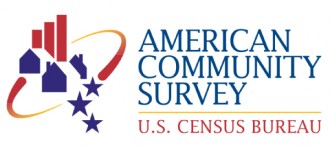 Under the title “Know Thyself, America,” Washington Post columnist George Will wrote a piece a little over a week ago that advocated for the continued support of the American Community Survey (ACS), an ongoing, long-form supplement to the decennial U.S. Census.
Under the title “Know Thyself, America,” Washington Post columnist George Will wrote a piece a little over a week ago that advocated for the continued support of the American Community Survey (ACS), an ongoing, long-form supplement to the decennial U.S. Census.
This shouldn’t seem like a particularly significant or controversial issue, but for those who fear the intrusion of government into any and all aspects of social life, it apparently is.
Much of Will’s defense of the ACS is, predictably, intended to appeal to conservatives. For example, he argues that the study serves the economic growth of the nation by providing important market information to businesses and corporations. He also insists the survey helps rein in the foolish behaviors to which politicians in democracies are prone. “In the absence of data,” Will says, “politicians pluck factoids from the ether.” The way that the column both bucks and buttresses a certain conservative rhetoric is vintage Will: “The collection and dissemination of useful information by government serve the deregulation of life by empowering the public to direct the government, to judge its performance, and to decrease dependence on government by invigorating the private sector.”
The more important and telling aspect of the piece (for me at least) is that Will begins it by locating the justification for the ongoing study in the enlightened faith of the founding fathers in reason, information, and responsible thought. Will’s most basic insight about the importance of data and information—in any society, but especially a democracy—resonates with some of the conversations my TSP partner Chris Uggen and I have been having about sociology and the future of The Society Pages. Sociology, we believe, is well-known for its cultural commentary and critical insight, and we’ve got tons of great perspective and critique on our blogs. But what sociology also produces is basic knowledge and information about society and the world around us.
In an increasingly complicated, fragmented, and changing world, data and facts are crucial. To us, this seems simple and obvious. Yet the most basic facts about society are also hard to publish in the journals (academics already knew that, didn’t we?) and even harder to circulate and disseminate to policy makers, journalists, and a broader public audience (all of whose attention can be swayed by the latest news cycle).
What information does society need? What data do we have? How do we get the word out? These are among of the basic challenges for the social sciences, sociology, and The Society Pages project. One of our collective goals for the year to come is to do a better job of delivering such basic social knowledge and information on our site.

Comments